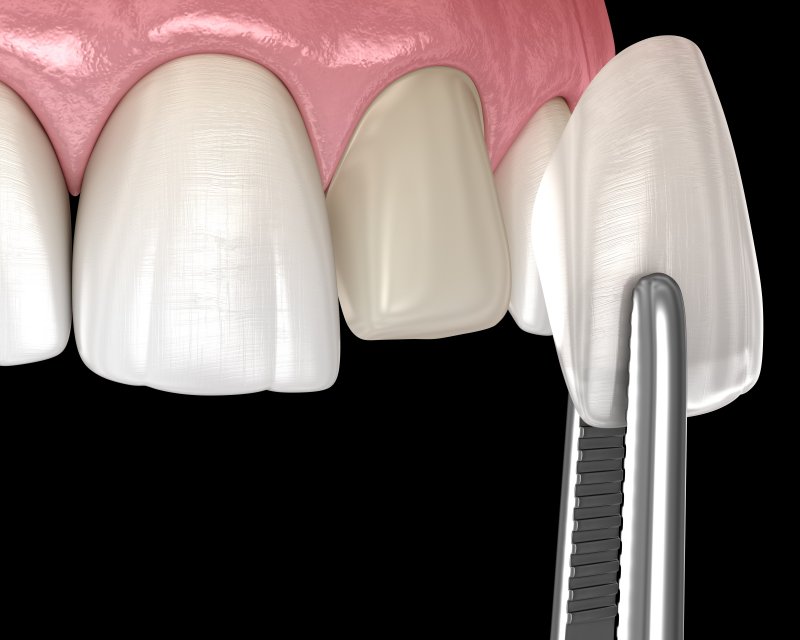
So, you’re planning on getting porcelain veneers from your dental practice. That’s great to hear! These thin porcelain layers will hide your dental flaws in just two appointments to improve your smile’s looks! However, it’s also understandable to be a bit concerned. After all, the procedure removes a tiny amount of enamel to make room for the veneers. That said, will the treatment lead to sensitive teeth? To answer that question, here’s a summary of sensitivity and veneers from a Lakewood dentist.
Do Veneers Increase Sensitivity?
As said above, dentists remove some tooth enamel before placing porcelain veneers. This removal lets the ceramic stick to your teeth properly. Otherwise, it won’t stay on for very long.
Due to the enamel loss, some patients experience mild tooth sensitivity in the days and weeks following placement. However, this temporary effect should fade after two or three months. Contact your dentist if it doesn’t, as severe and continued sensitivity can indicate a bigger problem with your veneers.
Can They Help Sensitivity?
Others find that veneers reduce sensitivity. When a patient’s enamel is already damaged, the porcelain layers can keep hot or cold foods from reaching affected teeth. As a result, they protect dental nerves from outside forces.
Still, whether your own veneers would do that depends on your oral health. Dentists ultimately decide whether you’re a good treatment candidate based on enamel loss. If too much is already gone, veneers won’t work for you since they wouldn’t bond well.
How to Manage Sensitivity
To help post-procedure sensitivity, consider the tips below:
- Watch your diet – After getting veneers, be careful of your foods and drinks. Hot or cold refreshments could worsen sensitivity. Also, limit how much acidic, fatty, and sugary things you eat.
- Take OTC pain relievers – If the soreness gets uncomfortable, take pain relievers like ibuprofen. Tylenol or Advil are excellent examples.
- Do a saltwater rinse – You can reduce swelling and balance your mouth’s pH levels by rinsing with saltwater. You’d then experience some pain relief.
Whether your veneers raise or lower tooth sensitivity, they’re still a highly-effective treatment. Talk to your dentist if you have any other questions about them in the future.
About the Author
Dr. Vincenzo Artino is a dentist in Lakewood, CO. Since earning his DDS from the Colorado School of Dental Medicine, he’s spent years in both dental work and advanced dental training. Overall, he works tirelessly to help his patients achieve their smile dreams. His current services include preventive, cosmetic, and restorative dentistry, not to mention TMJ therapy. Dr. Artino currently practices at Lakewood Complete Dentistry and can be reached at his website or by phone at (303)-238-2800.

